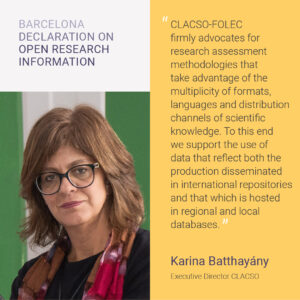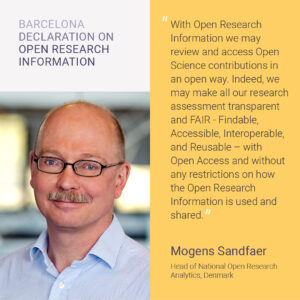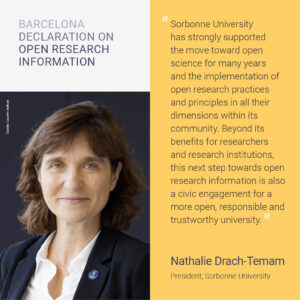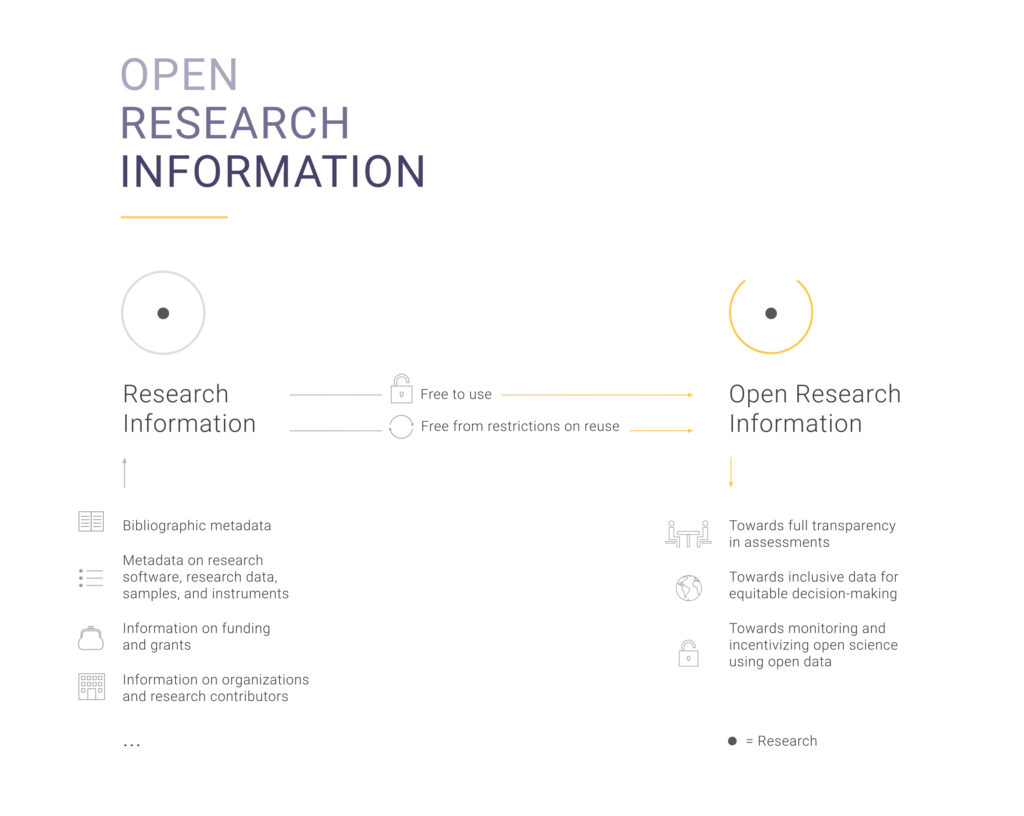More than 40 organizations have committed to being more transparent about how they share information about their research processes and outputs.
The Barcelona Declaration, released April 16, calls for open research information—or metadata—to be the norm. Signatories include funders and higher education institutions from the Gates Foundation to the Coimbra Group which represents 40 European universities. [Click for a full list of signatories.]
Open data about research activities is vital to open science, but has often been overlooked, said Bianca Kramer, a university librarian for 15 years and one of the driving forces behind the initiative. The idea for the declaration began at a workshop last November that Kramer had with colleagues who shared an interest in changing the research information landscape.

“Information about research outputs, who is involved, and who is funding what, is very important in how the research process is organized,” said Kramer, now an independent consultant with her own business, Sesame Open Science. “It’s important in making decisions about resource prioritization, in discovery and in reproducibility. Often this metadata is behind paywalls, licensed in proprietary databases.”
Those who signed the Barcelona Declaration made pledges to 1) make openness the default for the research information they use and produce; 2) work with services that systems that support and enable open research information; 3) support the sustainability of infrastructures for open research information; and 4) support collective action to accelerate the transition to openness of research information.
”It’s heartening to see a collective commitment to making this crucial layer of research information more open and transparent,” said Heather Joseph, executive director of SPARC. “Ending the reliance on proprietary sources and closed infrastructures is in the best interest of everyone involved in the research enterprise.”

The declaration is aimed at research performing organizations and funders to make concrete progress toward the four goals, Kramer said. Signatories are invited to participate in a to-be-formed “Coalition on Open Research Information.” Initial focus has been on Europe and Latin America, but all are welcome to join and Kramer hopes the list of supporters will grow as there is a recognition of power in joint action. Organizations that provide data, services or infrastructures have the option of being listed as supporters of the Declaration.
The Barcelona Declaration is about making scientific defaults and norms align more with society’s values, said Jason Portenoy, senior data engineer with OpenAlex, an open index of the global research system.
“Nobody involved in the production or funding of science thinks that this data should be behind a paywall or beholden to shareholder interests,” Portenoy said. “It just makes sense to have it open and be more of a public good. The Barcelona Declaration is an important milestone in that global momentum.”
As a supporter and signatory, OpenAlex plans to do outreach on social media and host webinars to spread the word about the declaration, Portenoy added.

Kramer said the declaration is needed to build awareness about the value of open metadata. Too often, she said, closed systems of sharing research information are entrenched in many organizations and there is an assumption it is higher quality than open data. “I think that’s something we should really assess critically and challenge that belief,” Kramer said. “If we collectively invest in the quality of open data sources, that’s better for the whole ecosystem, because it benefits everyone – including organizations that cannot pay for proprietary products.“
There will be an English-language webinar to launch the Declaration on April 23, 7-8:30 a.m. EDT. Click here to register for the webinar.
